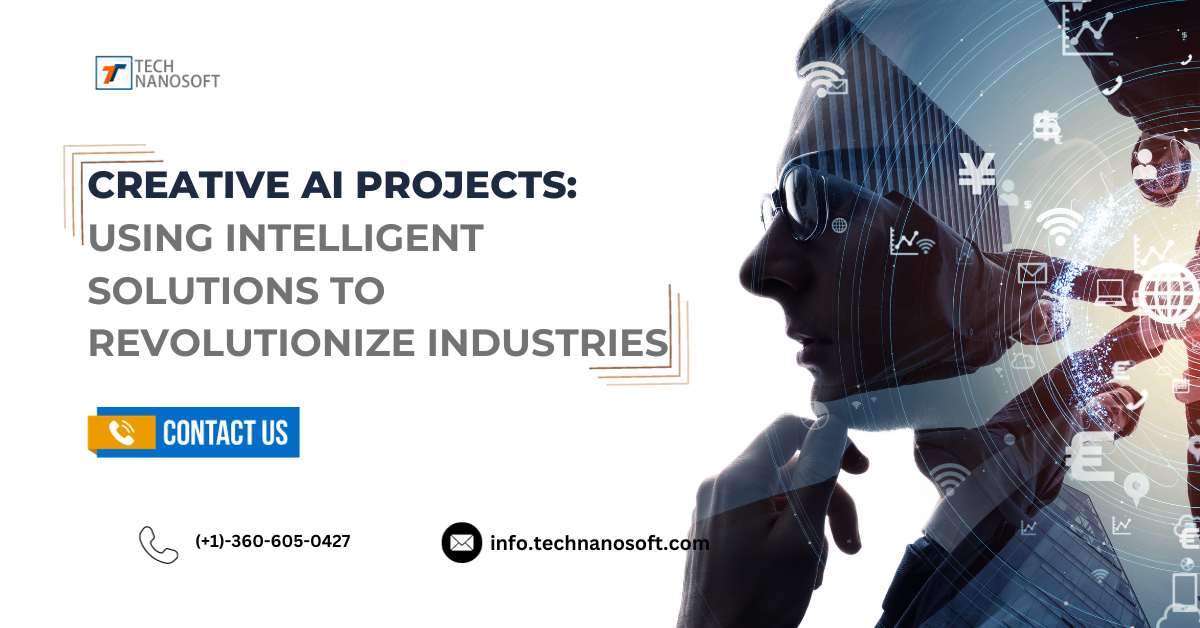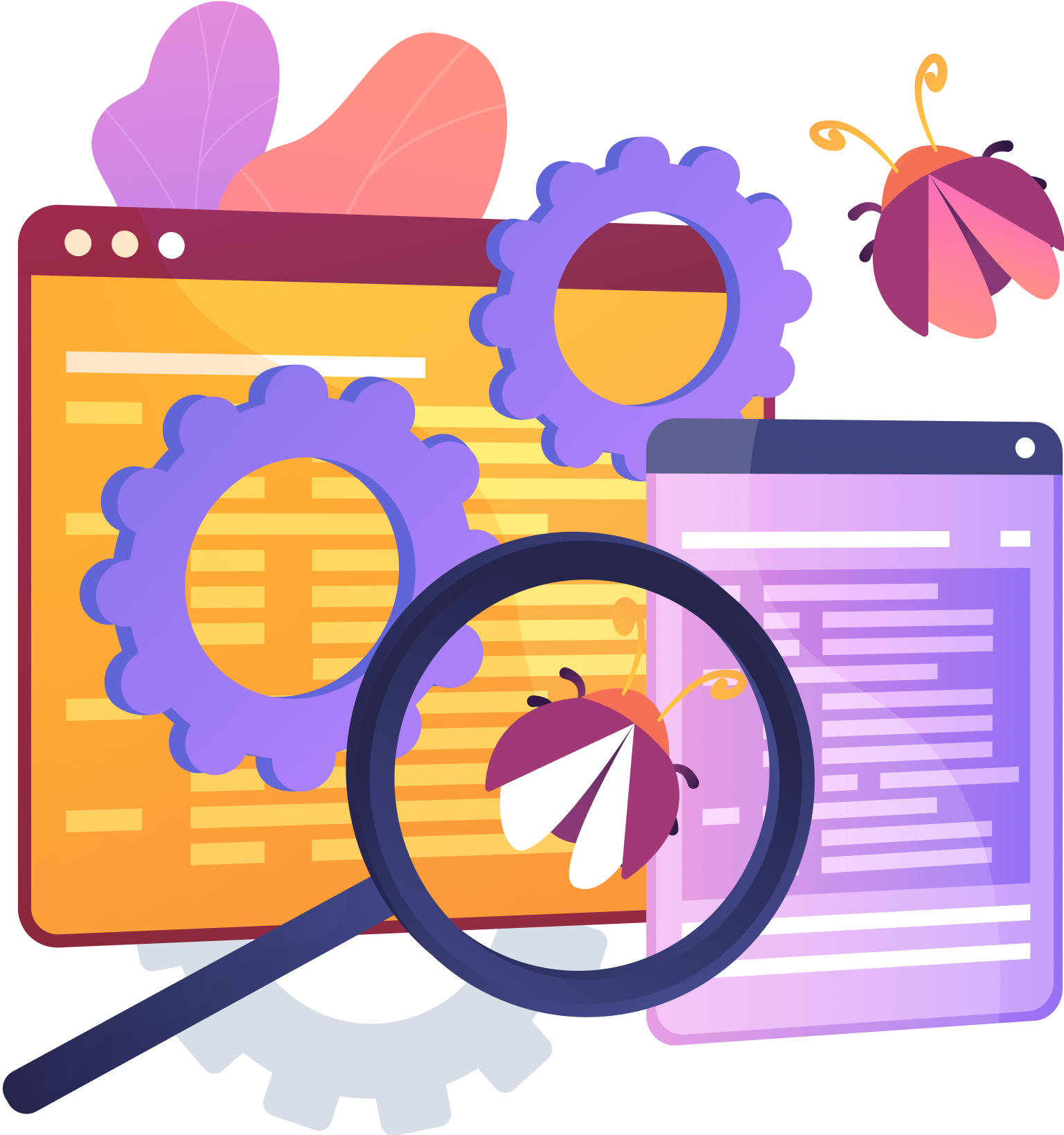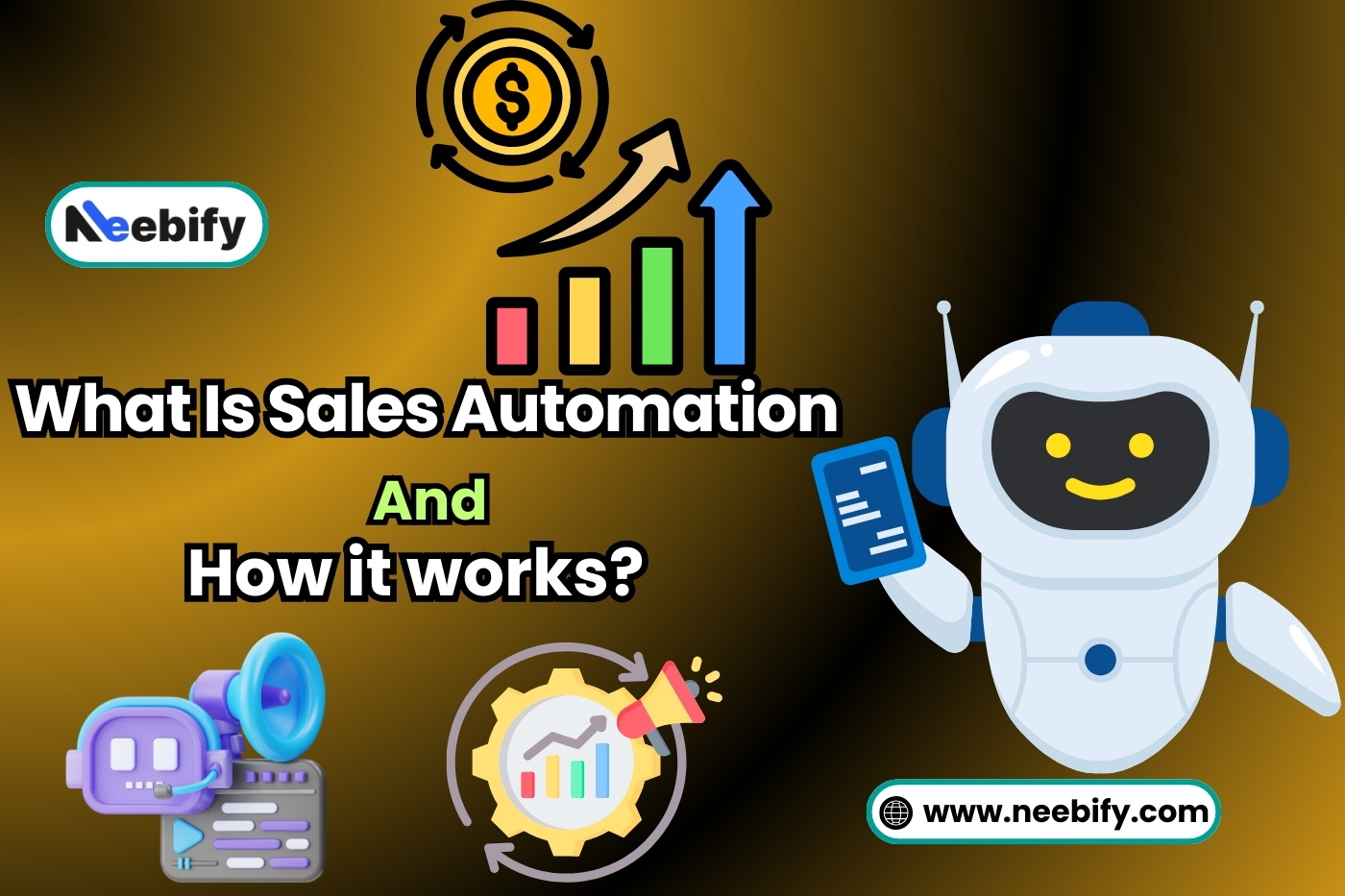Creative AI Projects: Using Intelligent Solutions to Revolutionize Industries

Amidst a technological revolution propelled by unparalleled breakthroughs, Artificial Intelligence (AI) surfaces as a potent and revolutionary factor, fundamentally altering the terrain of commercial operations. This article explains the essential elements that form the dynamic ecology of artificial intelligence and acts as a guide through its intricate network. Artificial Intelligence (AI) weaves an intricate web of innovation from the core hardware, such as GPUs and TPUs, to the intelligent software that includes machine learning algorithms. This investigation goes beyond the theoretical and provides a broad overview of real-world applications across a variety of industries. AI has a significant impact on all industries, including healthcare, banking, e-commerce, and education. It improves workflows, boosts productivity, and opening up fresh opportunities. Furthermore, by highlighting the most lucrative and promising AI company concepts, the story reveals the potential gold mines for business owners. This article challenges readers to see AI's enormous potential and traverse the rapidly changing field of AI innovation in a world where it is more than simply a technological tool—rather, it is a paradigm-shifting force.
Examining the AI Market Structure in Detail
1. A Changing Ecosystem
The AI industry is known for its innovative and dynamic nature.
Numerous entities, encompassing both established tech behemoths and up-and-coming startups, actively participate in the dynamic character of the market.
2. Three Essential Elements
Hardware, software, and services are the three main components that make up the framework of the AI market.
3. Processors for AI in Hardware
The core hardware of the AI industry is made up of AI processors.
These processors enable systems to carry out the intricate calculations and duties required for artificial intelligence functions.
4. Software - AI Applications and Machine Learning Algorithms
AI applications and machine learning techniques are included in the software layer.
The clever algorithms that allow AI systems to learn and get better over time are called machine learning algorithms.
AI applications, which offer a range of functionality across industries, are the real-world applications of AI.
5. Consulting, Implementation, and Support Services
in the AI sector, services are vital and fall into three main categories: installation, support, and consulting.
Consulting services help companies understand and plan for their deployment of AI.
The practical integration of AI technology into current corporate processes is the focus of implementation services.
AI systems' proper operation and continuous maintenance are guaranteed by support services.
6. Entrepreneurship's Vital Sign
It is vital for aspiring entrepreneurs to comprehend the complex framework of the artificial intelligence sector.
To effectively navigate this ecosystem, one must have a strategic understanding of the cooperative roles that services, software, and hardware play.
Artificial Intelligence in the Operations of Businesses
1. Medical Care
Diagnostics Artificial intelligence (AI) is used to evaluate medical data, such as test results and photographs, to help medical practitioners diagnose patients more quickly and accurately.
Predictive analytics To enable preventive interventions and individualized patient care, healthcare companies employ AI algorithms to forecast possible health hazards.
2. monetary
Fraud Detection To improve transaction security and identify and stop fraudulent activity, financial institutions use artificial intelligence (AI) for real-time data analysis.
Automation Regular financial tasks are automated by AI-powered algorithms, which increase accuracy and lower the possibility of human error.
3. E-business
Data analysis To improve customer engagement, AI systems examine purchase history, preferences, and behavior to deliver tailored product recommendations.
Supply Chain Management Artificial Intelligence is utilized in supply chain operations to enhance overall logistics efficiency, optimize stock levels, and forecast inventories.
4. Client Interaction
Chatbots and Virtual Assistants Artificial Intelligence-powered chatbots and virtual assistants improve consumer interactions by responding to inquiries instantly and promoting more efficient communication.
Personalized Marketing AI uses consumer data analysis to develop tailored and targeted marketing campaigns, which boosts the efficiency of outreach initiatives.
Artificial intelligence (AI) in company operations not only simplifies procedures but also creates new opportunities for creativity. Businesses may allocate resources more effectively and concentrate on making strategic decisions by automating repetitive operations. In healthcare, the use of AI in diagnostics leads to faster and more accurate results, improving patient outcomes. Financial transactions are protected in the banking industry by the increased security offered by AI-driven fraud detection. E-commerce companies may give customers a more enjoyable and engaging buying experience by using AI-driven customization.
Successful AI Startup Concepts
1. Healthcare Solutions Driven by AI
AI has a lot of potential applications in the healthcare industry. Entrepreneurs can concentrate on creating apps that use AI to customize medicine by creating customized regimens based on each patient's unique characteristics. Furthermore, by analyzing medical data with previously unheard-of accuracy, AI can have a substantial impact on diagnostics and help medical practitioners make better judgments. Another innovative path is predictive analytics, which can be used to identify possible health hazards and enable early disease detection and preventive interventions. These apps help to improve patient outcomes and tailored care in addition to increasing the effectiveness of healthcare procedures.
2. Investment and Smart Finance Platforms
AI innovation has the potential to significantly disrupt the financial sector. By providing customers with individualized and data-driven investment recommendations, entrepreneurs can transform the investing environment by developing AI-driven robo-advisors. Concurrently, the application of advanced fraud detection algorithms improves the security of financial transactions, protecting companies and customers alike. Startups may offer creative solutions that meet the changing demands of investors and institutions by fusing AI with financial knowledge. This helps to create a more secure and customized financial ecosystem.
3. E-commerce Enhancement
An important factor in the revolution of e-commerce is the use of AI algorithms. Entrepreneurs may develop AI-powered platforms that offer tailored product recommendations, improving the whole online shopping experience for consumers. This raises the possibility of successful transactions while simultaneously increasing client involvement. Additionally, by enhancing inventory forecasting, the application of AI to supply chain management brings about a new degree of efficiency. This optimization guarantees that organizations can quickly satisfy client requests while cutting expenses and waste. In summary, using AI to e-commerce can result in a retail setting that is more efficient and focused on the needs of the consumer.
For startups, the nexus of AI and educational technology presents exciting prospects. Entrepreneurs can create AI-based learning systems that offer individualized instruction by taking into account each learner's unique learning preferences. AI tutors can also be used to provide adaptable learning environments, adjusting course material to each student's unique strengths and shortcomings. This helps to improve skills while also improving the learning process. Startups in the education technology sector can lead the way in evolving learning approaches and improving accessibility to customized education.
How Do AI-Related Startups Get Funds?
1. Models of Subscriptions
AI businesses frequently profit from the subscription model, giving customers free access to their services in exchange for paid subscription plans that unlock premium features or more advanced functionality. With this strategy, entrepreneurs can attract users who are prepared to pay for additional services, generating a consistent and recurring income stream, and grow their user base through free products.
2. Royalties and Licensing
Leasing AI technologies or algorithms to other companies is another way to generate income. AI entrepreneurs can make money from their intellectual property by licensing it to other businesses if they have created proprietary models, algorithms, or technologies. This approach brings in money while also making the startup's innovations more widely accepted in the sector.
3. Models of Freemium
For AI startups, freemium models are a common business model. These businesses provide users with a free basic version of their AI services so they may test out the essential features. Users are then pushed to upgrade to a paid subscription in order to access premium services or advanced features. With this approach, entrepreneurs can reach a wider audience of users and turn a portion of them into paying clients who are looking for more benefits.
4. Advisory and Execution Services
AI startups can make money off of their experience by consulting with and implementing AI solutions for companies looking to add AI to their operations. This source of income include giving advice on AI adoption tactics, helping to put AI systems into place, and continuing to support them. Startups can position themselves as reliable partners for companies navigating the challenges of AI integration by utilizing their particular skills.
To sum up
Businesses have never-before-seen chances to carve out a niche as AI continues to change the commercial landscape. Achieving success requires a thorough understanding of the market structure, investigation of various applications, and identification of lucrative company concepts. AI startups have the potential to transform industries and prosper in a cutthroat market by combining innovation and strategic planning in the proper proportions.









